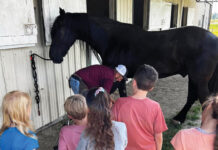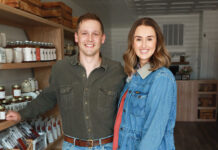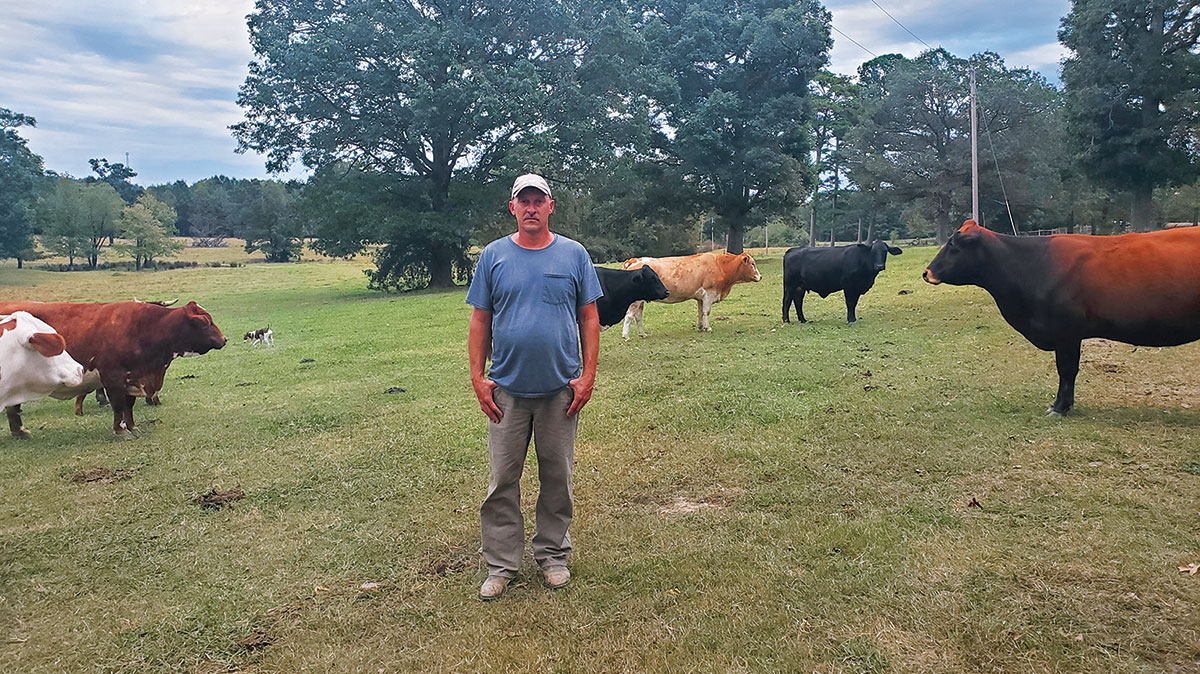
Dave and Pat Sargent retired from dairy farming in 1990. At that time Dave decided to raise vegetables on 1/2 acre of their 40 acres outside of Prairie Grove, Ark., for personal use and “for something to do.”
Dave grew up in the 1940s when if you didn’t raise it, you didn’t eat it giving him his crop farming foundation. Dave remembers his folks trading any extra dried beans or peas for sugar and flour. Pies or cakes were a rare treat. Part of Dave’s learning to live with the land rather than using it came from harvesting honey from bee trees which the family found by watching bees. Once done collecting pollen, bees fly straight to their tree, thus the term “beeline.” The family cut the tree and collected honey while the bees found a new tree to colonize.
Even with only 1/2 acre planted, the couple grew far more produce than they could use. They started selling the surplus at the Fayetteville Farmers Market but found even that outlet did not solve the surplus problem and added Harps and Marvin’s to their outlets. Eventually they expanded the produce acreage and now sell exclusively to WalMart. Dave believes in feeding the world. He said, “Asian farmers are the best and you can always spot their produce at a farmers markets because each piece is perfect. However, Asian farmers are slow and methodical and perfectionists. They will never feed the world because they grow as much on 1 acre as we can grow on 10 acres. They do everything by hand and it shows.”
Food safety defines the crop industry. Everything on a crop farm is recorded, from equipment maintenance to plant testing to restroom cleaning. Dave is required to keep 64 different logs and spends long hours inputting data into those logs. Dave said, “The biggest change in the industry in the 25 years I’ve been raising crops is accountability. However, the certified logs are not only mandated but also produce data that can be analyzed for possible program improvements. In addition, being a certified grower means any surplus produce can be sold anywhere without question.”
Chemical use is both necessary and a concern because the line between proper use and toxicity is a fine one. Overuse can kill plants or seep inside the produce making it unfit for safe consumption. To help, University of Arkansas experts study the labels of products approved for insect and weed control. They focus on ingredients and proportions.
Dave inspects the fields every day while University personnel inspect and perform random surface tests weekly. Food safety auditors check to ensure lab analysis for chemical residue inside produce is correctly completed to ensure plants are not contaminated by root absorption.
Topsoil on the Sargent land ranges from a depth of 6 inches to 4 feet. Dave said, “The soil must be alive with microbes and nutrients concentrated in the top 6 inches. We want more plant, not more roots.” In order to address soil sustainability and maximum production, field low spots are treated before planting. Optimum nutrient concentration is gained by continuously applying fertilizer through a tape irrigation system. Each system covers 20 to 30 acres. Attention to soil sustainability is critical because most harvesting occurs 30 days after seeding when another crop is then sowed. Environmental sustainability is also addressed by recycling the tapes at the end of each growing season.
The farm produces several types of squash and green beans. Last year the Sargents used their two greenhouses and tried peppers and okra for the first time. An unusually cool July seriously hampered the okra crop, which will be an experimental crop again this year.
Dave selects specific species of plants first by visiting with other farmers about their preferences. Next Dave contacts his extension agent who locates seed outlets and checks for availability while also investigating test results, some of which come from the University. Such information is also passed on to seed companies who depend on the data for information about seed resistance to disease and insects. Finally, Dave goes directly to the seed companies for purchase but has learned through experience never to buy a seed that has not been tested for at least two or three years.
Dave said, “The Army taught me if you want to do something, you have to learn how.” Agricultural technology is constantly improving so Dave takes classes from Cornell University in New York to keep up with those changes.”
Dave’s sister manipulated the first meeting of the future couple when Pat was trying to sell a used refrigerator. The pairing was a good one. In addition to farming, the Sargents have published over 400 books. The couple has been married for 40 years with four children, four grandchildren and three great grandsons.







